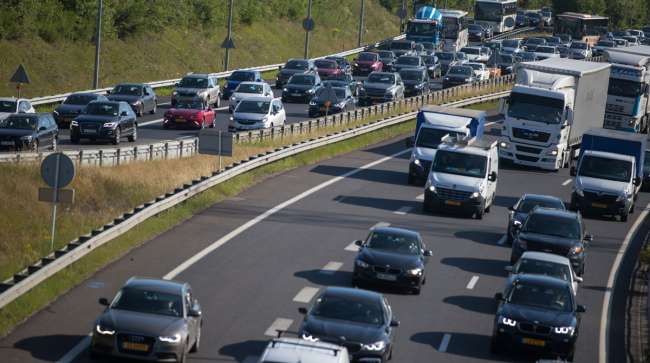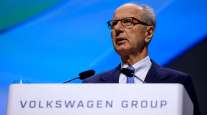Bloomberg News
Automakers Urge EU to Delay Stricter Emissions Mandates

[Stay on top of transportation news: Get TTNews in your inbox.]
The European Union should use emergency regulation to delay its 2025 emissions targets for automakers by two years, according to a draft proposition from the industry lobby seen by Bloomberg.
EU rules targeting a CO2 fleet emission of about 95 grams of CO2 per kilometer per vehicle would require automakers to either halt production of about 2 million cars or be exposed to fines that could reach $14.3 billion for passenger cars and another €3 billion for vans, according to estimates by the European Automobile Manufacturers’ Association contained in the draft and seen by Bloomberg.
“The EU is in a crisis caused by low consumer demand for EVs and unfair competition from third country EV manufacturers, meaning that the EU industry will not be able to meet these reduction targets,” the informal draft said.
“EU industry will have little choice but to significantly cut production, which threatens millions of jobs in the EU, harms consumers, and adversely impacts the EU’s competitiveness and economic security.”
TT's Seth Clevenger and Mike Senatore dive into the details behind the 2024 Top 100 Private Carriers list. Tune in above or by going to RoadSigns.ttnews.com.
Renault Chief Executive Officer and ACEA President Luca de Meo has already started speaking up to raise awareness of potential billions in euros in fines the car industry faces due to a slowdown in EV demand, meaning most manufacturers won’t be able to meet stricter European Union CO2 rules as of next year.
In an interview on French radio on Sept. 7, he said the European Commission should have “a bit of flexibility” regarding upcoming targets.
ACEA hasn’t issued a position paper nor has it yet taken a formal stance on the matter, according to a spokesman. A media representative for Renault declined to comment.
RELATED: Auditing Report Calls EU’s Hydrogen Targets Unrealistic
Europe’s auto sector has been plunged into a crisis as it battles cheap competition from China, high energy costs and a cost of living crisis that dented consumer demand for EVs. At the same time, manufacturers need to prepare for sales of combustion engine vehicles effectively being banned in the EU from 2035.
“The EU automotive industry has invested billions in electrification to put vehicles on the market, but the other necessary ingredients for this transition are not in place and the competitiveness of the EU is eroding,” ACEA said in a statement on its website on Sept. 12.
Want more news? Listen to today's daily briefing above or go here for more info
For the overall EU auto market to be compliant with the stricter 2025 emissions rules, the EV share of passenger cars and vans should be about 20% to 22%, while the level has currently stagnated at less than 15% for cars and much lower for vans, according to the draft.
“It’s a difficult path,” said Robin Loos, deputy head of energy transport and sustainability at the consumer lobby BEUC. But “these targets were set six years ago. This last minute call is representative of what part of the industry has not well anticipated.”
Volkswagen AG, Europe’s biggest automaker, will be among those likely to fall short of the targets. The company this week scrapped three-decades-old job protections in Germany after warning last week it may have to shutter plants in Europe’s biggest economy for the first time.
Longer term, the EU is planning to phase out the sale of new combustion engine-powered vehicles by 2035, and a review of the target is due in 2026.
Volkswagen is worst positioned among European car manufacturers for compliance with stricter 2025 CO2 rules, Jefferies analyst Philippe Houchois wrote in a note this month.
The scope for regulatory lenience is low, and the 2025 rules could accelerate capacity restructuring within the industry, Houchois said.





